24th Greater Mekong Subregion Ministerial Conference
The 24th GMS Ministerial Conference (MC-24) was held on 4 November 2020 with the theme “Pave the way to a more integrated, inclusive, sustainable and prosperous GMS.”
The 24th GMS Ministerial Conference (MC-24) was held on 4 November 2020 with the theme “Pave the way to a more integrated, inclusive, sustainable and prosperous GMS.”
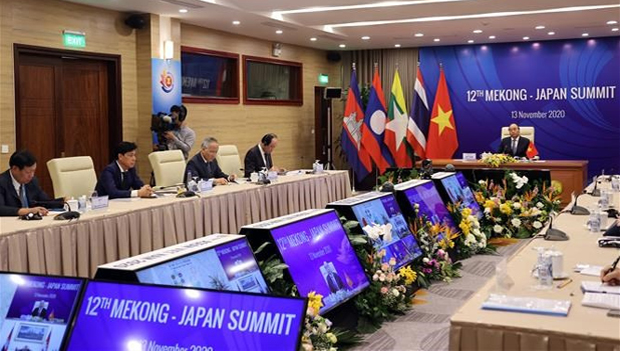
The 12th Mekong-Japan Summit took place virtually on 13 November as part of the 37th ASEAN Summit and Related Summits. Photo by VNA via VNExplorer.
Japan and Mekong countries convened the 12th Mekong-Japan Summit on 13 November, cochaired by Japan Prime Minister Suga Yoshihide and Viet Nam Prime Minister Nguyen Xuan Phuc. The meeting underscored Japan’s strong commitment to the Mekong subregion and reviewed progress of cooperation between Japan and Mekong countries (Cambodia, Lao People’s Democratic Republic [PDR], Thailand, Myanmar, and Viet Nam) as guided by the "Tokyo Strategy 2018." The Strategy seeks to strengthen connectivity, improve human resource development, and enhance environmental protection.
Tourism is a foundation of the Asia and the Pacific economy. But once-bustling tourist hotspots now resemble ghost towns as the impact of COVID-19 casts a heavy pall over the industry.
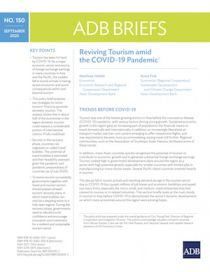
This brief explores how governments could help revitalize the important tourism sector in Asia and the Pacific amid the challenges of the coronavirus disease (COVID-19) pandemic.
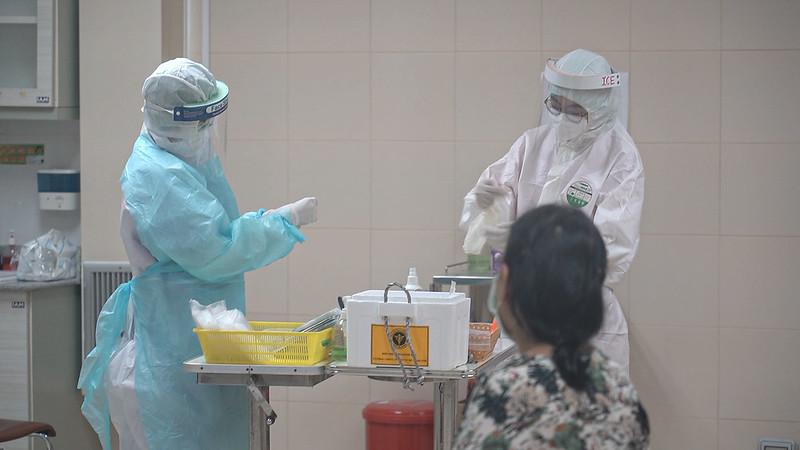
Scenes of healthcare workers at Thailand Bamrasnaradura Infectious Disease Institute, Ministry of Public Health. Photo: UN Women/ Flickr (CC BY-NC-ND 2.0)
Senior officials of the Greater Mekong Subregion (GMS) met to discuss responses to the coronavirus disease (COVID-19) in the GMS, focusing on regional approaches to promote recovery and resilience. The meeting was held via videoconferencing on 2 June 2020, with participation from all GMS countries and the Asian Development Bank (ADB).
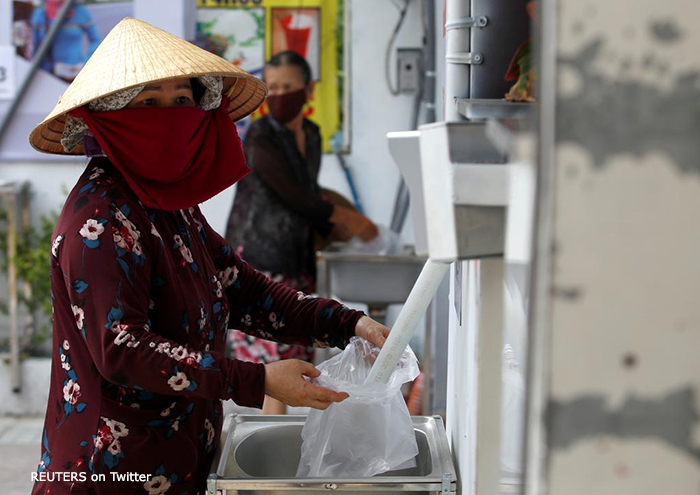
A 24/7 automatic dispensing machine provides free rice for people out of work following the lockdown. This was spearheaded by a Vietnamese entrepreneur in Ho Chi Minh City. Photo by Reuters on Twitter.
An initiative by the Mekong Tourism Coordinating Office (MTCO), Destination Mekong, and the Mekong Institute (MI) taps individuals' help in crowdsourcing newly-spotted innovations on how the coronavirus disease (COVID-19) is being managed and/or overcome in the Greater Mekong Subregion (GMS).
In a blog post, Mr. Arjun Goswami of the Asian Development Bank (ADB) emphasizes the importance of regional cooperation to more effectively address the transnational threat and mutual risks posed by the COVID-19 pandemic.
Together We Deliver: Grants for a Brighter Future is a special edition of the Asian Development Bank’s (ADB) annual publication featuring stories of lives uplifted across Asia and the Pacific through grant financing by the Asian Development Fund (ADF). The ADF provides grants to support activities that reduce poverty and improve the quality of life in “ADF countries”—the poorest and most vulnerable countries in the region.
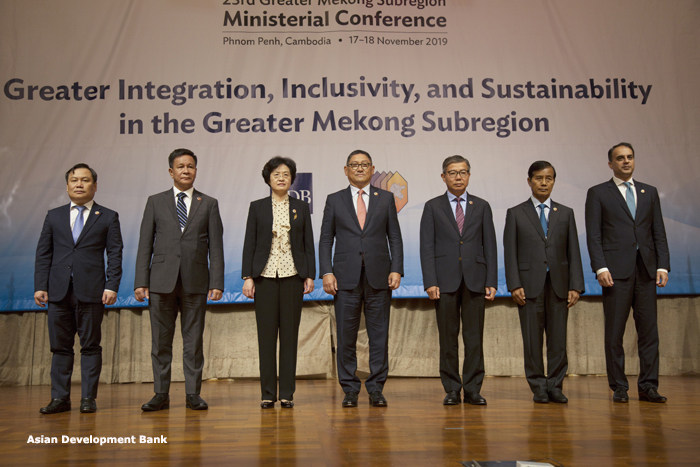
Heads of GMS country delegations participate in the 23rd GMS Ministerial Conference. Standing from left are Mr. Vu Dai Thang, Deputy Minister, Ministry of Planning and Investment, Viet Nam; Mr. Aung Htoo, Deputy Minister, Ministry of Commerce, Myanmar; Ms. Cheng Lihua, Vice Minister, Ministry of Finance, PRC; Mr. Sok Chenda Sophea, Minister attached to the Prime Minister, Minister in charge of GMS Cooperation Program/GMS Minister, Secretary General, Council for the Development of Cambodia; Mr. Viengsavath Siphandone, Deputy Minister, Ministry of Public Works and Transport, Lao PDR; Mr. Thaworn Senneam, Deputy Minister, Ministry of Transport, Thailand; and Mr. Ahmed M. Saeed, Vice President for ADB Operations in the Southeast Asia Department, the East Asia Department, and the Pacific Department. Photo by ADB.
The Royal Government of Cambodia and the Asian Development Bank (ADB) organized the 23rd GMS Ministerial Conference on 17-18 November 2019 in Phnom Penh, Cambodia, with the theme “Greater Integration, Inclusivity and Sustainability in the GMS.” The meeting brought together GMS Ministers and Senior Officials of the six GMS countries—Cambodia, the People’s Republic of China (PRC), Lao People’s Democrati
Risk communication is a critical component of countries’ effective response to health emergencies. This is why it is one of the focus areas of the Asia Pacific Strategy for Emerging Diseases (APSED), the common strategic framework for World Health Organization member countries of the Asia Pacific region to effectively detect, prepare for, and respond to threats posed by emerging infectious diseases. Risk communication helps inform decision making, encourage positive behavior change, and maintain public trust.